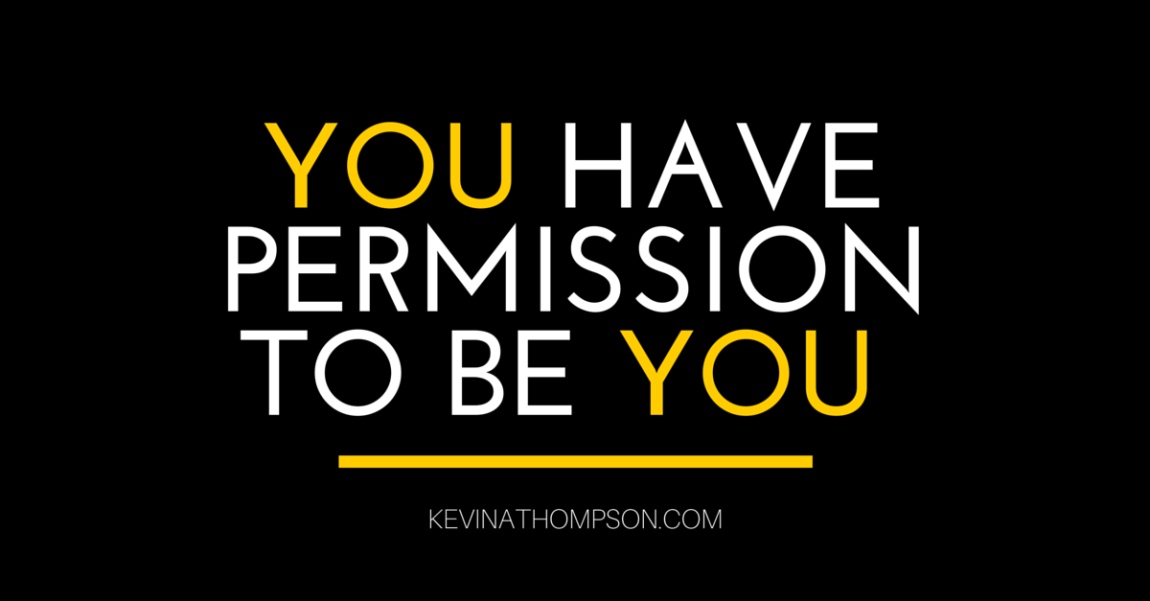Sometimes we need permission.
When Jenny and I first met, we were in college. After a year of dating, we moved to Birmingham so I could attend graduate school. That first Christmas in Alabama we came home and got iced in for two weeks. On our way back to Birmingham, Jenny made a striking statement. “I don’t like the Fort Smith you,” she said.
I was confused by her statement so I asked her what she meant. She explained that back home I was a different person. I wasn’t aware, but apparently at home I reverted back to old roles and personalities. Even though I had grown up and changed, when I went home I didn’t feel comfortable to be the real me. Jenny loved me; she just didn’t really like the old me. (See: You Control What Matters Most)
We all change–sometimes for the better and sometimes for the worse. We aren’t the same person for our whole lives. We have the ability to make dramatic changes. We can make intentional changes by discovering things we don’t like about ourselves, consciously choosing a different course of action, and repeating those choices until they become habits.
When we do so, we become different people. We make better choices, have healthier relationships, and have public lives that more closely resemble our private lives.
However, when those changes take place in a new context–a different town, new stage of life, or a changed relationship status–it’s easy to revert back to our old selves whenever we return to the old setting.
An addict who lives clean and sober in their current context might be tempted toward a substance when they return to the old neighborhood.
An empowered man who has learned to make bold decisions might become submissive when talking to his ex-wife.
A woman who has found her voice and personality might revert back to her inverted self when her mother is around.
While change is difficult, after a change occurs a person has to make the conscious choice of living as that person in every context. On many occasions, they simply need to give themselves permission to do so.
You have permission to be you. (See: You Don’t Know Me)
If you have learned to politely, but clearly, speak your mind, you have permission to do so with your mother-in-law.
If you have overcome a people-pleasing nature, you have permission to stop pleasing even your oldest friends.
If your life has been transformed by faith, you have permission to live that faith in front of your old family.
You have permission to be you. Embrace it. Appreciate it. Find it a test of your progress to be the new you in every aspect of life.
To be the new you:
Acknowledge the past as the past. Don’t deny your past struggles or characteristics. Acknowledge them. Become deeply aware of who you were. Yet be confident that is the old you. Understand that is the past and communicate that change has occurred.
Define yourself. When we struggle to live out our changes in certain contexts, we are allowing ourselves to be defined by other people. Instead of taking responsibility for ourselves, we are giving that power to other people. Stop it. Define who you are and live by your own definition. Do not empower other people to rule over you.
Change is hard work. Because it is so difficult, when good change occurs we should celebrate it. With all the effort demanded for change to take place, we should not undo that work by reverting to our old selves in certain contexts.
Give yourself permission to be the new you.



